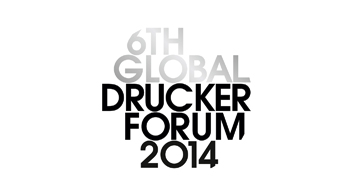Speakers Bios & Abstracts

Professor of Global Strategy at IESE Business School and
Distinguished Visiting Professor of Global Management,
Stern School of Business, New York University
Biography
Pankaj Ghemawat is Professor of Global Management and Director of the Center for the Globalization of Education and Management at the Stern School of Business at New York University, and the Anselmo Rubiralta Professor of Global Strategy at IESE Business School;. Between 1983 and 2008, he was on the faculty at the Harvard Business School where, in 1991, he became the youngest person in the school's history to be appointed a full professor. Ghemawat was also the youngest "guru" included in the guide to the greatest management thinkers of all time published in 2008 by The Economist.
Ghemawat's books include Commitment, Games Businesses Play, Strategy and the Business Landscape and Redefining Global Strategy. IBM Chairman and CEO Sam Palmisano described the latter book as "an important strategic guidebook for leaders of the 21st century globally integrated enterprise... [with an] analytic framework that is both visionary and pragmatic - aware of the broader historic trajectories of globalization, but grounded in the real kinds of decisions business leaders have to make."
Ghemawat's new book, World 3.0, was published in May 2011 by Harvard Business Review Press. Pascal Lamy, Director General of the World Trade Organization, has described it as "offering recommendations that should inspire all global stakeholders in times of major global challenges" and Peter Löscher, CEO of Siemens, as "the right book at the right time...[about] ways to make the global economy more stable--and more sustainable." And according to an early review in The Economist, "World 3.0. should be read by anyone who wants to understand the most important economic development of our time." World 3.0 won the 50 Thinkers Book Award for the best business book published in 2010-2011, the Axiom Business Book Gold Award in the International Business/Globalization category and the IESE Alumni Research Excellence Award.
Pankaj Ghemawat also developed the DHL Global Connectedness Index 2012, which was first released in November 2011, and has recently launched the 2013 Depth Index of Globalization, a comprehensive analysis otf globalization and the rise of emerging markets. According to Pascal Lamy, Director General of the World Trade Organization, “In the current global economic climate where the threat of increased protectionism and isolationist tendencies is of genuine concern, this report offers a compelling argument, based on a methodologically robust analysis, of why increased global and regional inter-connectedness and openness is the more prudent policy path.”
Ghemawat has written more than 100 research articles and case studies, is one of the world's best-selling authors of teaching cases and fellow of the Academy of International Business and of the Strategic Management Society. Other recent honors include the McKinsey Award for the best article published in the Harvard Business Review, the Irwin Educator of the Year award from the Business Policy and Strategy division of the Academy of Management and the Herbert Simon Award of Rajk Laszlo College for Advance Studies in Budapest. Among other recognitions are the IESE-Fundación BBVA Economics for Management Prize and the IESE Alumni Research Excellence Prize for Redefining Global Strategy.
Ghemawat helps companies and business schools better understand and address international opportunities and challenges. He served on the taskforce appointed by the AACSB, the leading accreditation body for business schools, on the globalization of management education, and authored the report's recommendations about what to teach students about globalization, and how.
2013: Ranked #11 in the Thinkers50, the global biannual ranking of management thinkers
Abstract
Management and Market Failures
Much of the recent discussion by management thinkers of the problems of capitalism has tended to focus on management failures—the notion that managers fail to act in their companies’ best (long-term) interests. But much of this discussion discounts the well-established point that market failures may (also) play an important role in generating poor outcomes. A similar imbalance seems, in fact, to characterize the business sector in general, at least in the United States: a survey suggests that people with higher degrees in business administration and finance are likely to take market failures less seriously than people with equivalent degrees in other fields. And this imbalance seems to survive controls for self-declared political affiliation! Taking both management failures and market failures seriously does more than simply stretch the mind: it also exposes an interaction effect in that management failures are likely to matter more in the presence of market failures than in their absence.













